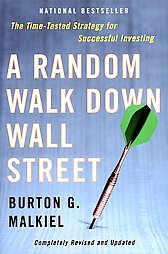Google Buys JotSpot to Expand Online Document-Sharing Service
Google Inc. said it acquired closely held start-up JotSpot for an undisclosed sum, a move that could strengthen Google’s expanding services for users to create and share documents online.
JotSpot, exploiting a technology called wikis, provides free and paid services that allow individuals to jointly work on Web-based information such as spreadsheets, photo albums, calendars and contact lists. Google, Mountain View, Calif., has assembled free online word-processing, spreadsheet, email and calendar services that have some similarities with JotSpot’s offerings. Such services could win away some of the consumers Microsoft Corp. is targeting with its Office software.
JotSpot Chief Executive Joe Kraus said his company was happy to join Google because “it’s really clear they are focusing on letting people collaborate and share and work together online.” Google executives are also trying to streamline the number of products the company has, and Mr. Kraus said JotSpot would focus on how to integrate with Google’s existing services.
JotSpot, Palo Alto, Calif., has about 30,000 paying corporate customers at about 2,000 companies. Roughly 300,000 people use JotSpot’s free service, which carries some storage and other restrictions. The company, which received funding from the Mayfield Fund and Redpoint Ventures venture-capital firms, has 27 employees.
Good News from Silicon Valley
EBay‘s third-quarter profit grew by 10 percent, helped in part by a lower tax rate and strong sales at its online payments unit.
Apple Computer‘s fourth-quarter profit increased 27 percent rise in its fiscal fourth-quarter profit.
The biggest winner is Google, whose third-quarter profits nearly doubled.
Microsoft CEO Ballmer Answers the Question:Is Windows Near End of Its Run?
The New York Times published an interview with Steven Ballmer.
Is Windows Near End of Its Run?
Steven A. Ballmer, the chief executive of Microsoft, has his hands full. The next version of the Windows operating system, Vista, is finally about to arrive — years late and clouded by doubts that it might violate antitrust rules in Europe.
Mr. Ballmer, 50, has been deeply involved in the discussions with the European competition authorities.
Windows Vista and Office 2007, according to industry analysts, may be the last time Microsoft can really cash in on these lucrative personal computer products, as software is increasingly distributed, developed and used on the Internet.
Yesterday, Microsoft announced that Vista would be shipped in late January and expressed confidence that it would pass regulatory scrutiny. [Page C3.]
In fast-growing consumer markets, Microsoft is playing catch-up. It trails well behind Google in Internet search. Next month, Microsoft will introduce its Zune music player, in an uphill effort to take on the Apple iPod.
At Microsoft, Mr. Ballmer must adjust to being alone at the top, as his friend and longtime partner, Bill Gates, eases out of his company duties to work full time on philanthropy.
In a meeting this week with editors and reporters of The New York Times, Mr. Ballmer answered questions about Microsoft, his job and the future of software. Following are excerpts:
Q. What was the lesson learned in Windows Vista? After all, it wasn’t supposed to ship more than five years after Windows XP.
A. No. No, it wasn’t. We tried to re-engineer every piece of Windows in one big bang. That was the original post-Windows XP design philosophy. And it wasn’t misshapen. It wasn’t executed, but it wasn’t misshapen. We said, let’s try to give them a new file system and a new presentation system and a new user interface all at the same time. It’s not like we had them and were just trying to integrate them. We were trying to develop and integrate at the same time. And that was beyond the state of the art.
Q. In the future, will the software model change? Will the Internet, for example, be the way most software is distributed?
A. That will happen. It’ll happen from us. It’ll happen from everybody.
Q. Doesn’t that mean that software product cycles are going to be much shorter, months instead of years?
A. Things will change at different paces. There are aspects of our Office Live service, for example, that change every three months, four months, six months. And there are aspects that are still not going to change but every couple of years. The truth of the matter is that some big innovations — and it’s a little like having a baby — can’t happen in under a certain amount of time. And, you know, Google doesn’t change their core search algorithms every month. It’s just not done.
Q. Is Vista the last operating system of this era? That is, the last operating system in the traditional sense of being this monolithic software product? Don’t these Internet changes open the door to Windows à la carte? After all, you have different versions of Windows now for personal computers, cellphones and hand-helds.
A. Windows is a little different because Windows manages the hardware. It’s got to come with the hardware and manage the hardware. For the thing called the PC — the thing we think of as having a big screen and a keyboard — there really is one infrastructure for supporting hardware, for supporting application development. It’s not 100 percent monolithic. But it’s almost 100 percent monolithic.
Q. Can we talk about Europe?
A. Beautiful place. I lived in Brussels for three years as a kid. I do love Brussels.
Q. I was thinking of what seems to be the continuing conflict — the disputes, penalties and fines — over how Microsoft designs Windows and what features you put in the operating system. Is there a way around that problem?
A. First of all, I wouldn’t call it conflict. We really have — no, I mean this genuinely — have been having a constructive dialogue. Now, no regulator, not in this country nor in Europe, is going to give you a gold star that says, I will attest that everything in Vista is OK. The Department of Justice is not going to do that, and the European Union is not going to do that. At the end of the day, we can get a lot of guidance. And then we have to make the call and we have to take the risk. We really just have to decide whether we think the thing is compliant. It’s not really their issue. It’s kind of our issue in an odd way.
A. With Bill Gates making the transition out of day-to-day involvement at Microsoft, what is the biggest challenge you have to overcome?
Q. Well, there are sort of two. First, it’s not like Bill’s written every line of code or designed every product or done anything like that for many, many years. But Bill’s been an incredible contributor. If Office 2007 is a great product, give Bill 3 or 5 or 10 percent of the credit. We have to make sure that — whether it’s 5 or 7 or 10 percent — we get those values someplace else. And second, with Bill people have understood that we’re committed to long-term innovation. Bill’s been emblematic of that. We’ve shared that vision all along the way. But I think I have to pick that up. Because people want to know that the buck-stops-here person is committed to continuing to invest and do things.
Q. Several of the areas Microsoft is betting on for future growth — Xbox, Zune and ad-supported Web software and services — are consumer markets. How do you think the consumer perceives Microsoft?
A. All our surveys will tell you consumers think the world of Microsoft. At the same time, you have to go win the consumer in each area. I’ll give you an example. When it came time to name Xbox, there was certainly a class of people who wanted to have Microsoft and/or Windows more prominent. They all lost. And it was a wise choice. Not because Microsoft is bad. But it wouldn’t have meant what it needed to mean to that audience. And Zune could have been Microsoft music system or Microsoft entertainment system or Xpod, I guess. But again, we thought the experience was different and it was worth giving its own identity. So I think we have a good seat with the consumer, but we have to prove ourselves every time as our competitors have to do, too, by the way. Google has a good brand. It didn’t help them a lick in video.
Q. What do you see as the most significant changes in how people use software?
A. I think one pervasive change is the increasing importance of community. That will come in different forms, with different age groups of people and it will change as the technology evolves. But the notion of multiple people interacting on things — that will forever continue. That’s different today, and we’re going to see those differences build. You see it in a variety of ways now, in social networking sites, in the way people collaborate at work, and in ad hoc collaboration over the Internet. You see it in things like Xbox Live, the way we let people come together and have community entertainment experiences. And you’ll see that in TV and video. It’s not like the future of entertainment has been determined. But it’s a big deal.
What is Google? A Search Engine
The New York Times raised a very good question on Google’s recent acquisition of YouTube: Should Google integrate YouTube and risk losing one of the hottest brands on the Internet, or leave YouTube independent and risk diluting its own powerful brand?
The search engine overlord has made more than 15 major acquisitions in areas as diverse as blogging,personalized search, satellite imagery, image management and cellular phone technology, the newspaper said.
The Google sprawl didn’t make the founders happy. Rather it made users confused. And new products one-level down from the home page drew far less attention and traffic than Google would be comfortable with.
According to Alexa, a Web information company, 72 percent of those who use google do so to search from its home page. Another 10 percent use it for e-mail and 8 percent for its Web-based image search. Video has been a straggler, at 3 percent, the newspaper said.
But with the stable of talent that Google has built, why not develop its own YouTube?
Its engineering teams have, after all, created services, including Google Calendar, Mail and Spreadsheet as well as language translation technology built into Google’s search engine. More than a dozen services — including Google Video, Google Maps and Google Desktop Search — have come from the company’s advanced research arm, Google Labs.
But those creations are complemented, if not overshadowed, by its acquisitions. Still, except for Google Earth, not one has become an unqualified success or market leader.
Moreover, with the exception of advertising-related technology acquisitions, Google has yet to develop significant revenue streams from its acquisitions. Its Picasa image management program allows users to purchase photo prints, and the company sells a commercial version of Google Earth for $400, but neither of those are major businesses yet.
YouTube is different from Google’s previous acquisitions not because it has a proven business model — it does not — but because it comes with an established audience (read the full news story).
Google in Talks to Acquire YouTube for $1.6 Billion
After Yahoo’s attempt to acquire Facebook, a much bigger acquisition is on the way.
From The New York Times
Google is in serious talks to acquire YouTube, the wildly successful online video-sharing Web site, for $1.6 billion in cash and stock, people involved in the negotiations said today.
A deal would end an almost yearlong chess game among the nation’s media and technology moguls to take over YouTube, which allows users to share home movies, amateur spoofs and snippets of the best parts of television shows. Though it is not yet profitable, the site has exploded into a cultural phenomenon less than a year after its debut, broadcasting more than 100 million video clips a day.
Microsoft, Yahoo, Viacom and the News Corporation, among others, have all paid visits to YouTube’s headquarters in San Mateo, Calif., in recent months to inquire about buying the company.
Terms of the potential sale to Google could not be learned. It was still possible that the talks could collapse or that another suitor could swoop in with a rival offer.
The negotiations come as all of the established media conglomerates are in a frenzied hunt to acquire hot Internet properties. Yahoo, for instance, is in negotiations to buy Facebook, a social networking site originally aimed at college students, for more than $1 billion, according to people involved in those talks.
The buyout rush is partly a reaction to Rupert Murdoch’s acquisition of MySpace, an online hangout with millions of personal Web pages. MySpace, which Mr. Murdoch bought last year for $580 million, is now worth as much as $2 billion by some analysts’ estimates.
China Blogging Report Released
From my CDT post
China Internet Network Information Center (CNNIC) put its “2006 China Blogging Report” online. Click HERE to download. For more information, click HERE to read the summary (in Chinese) from CNNIC.
CDT’s previous coverage on this news:
China Blogging Report by CNNIC
China Internet Network Information Center (CNNIC) released its 2006 China Blogging Report on Sept. 23. The report said the number of Chinese bloggers reached 17.5 million at the end of August, and active bloggers (with at least one update each month) reached 7.70 million. Blog readers were more than 75 million.
The report estimated active bloggers will break 10 million at the end of this year.
The report also covered blog advertisements. Forty percent of blog readers were willing to accept blog advertisements, twenty percent claimed blog advertisements won’t shift their reading preference, and about one third of readers held a neutral attitude towards blog advertisements.
An Economic Analysis of China’s Internet Censorship
China Digital Times has a delicious story on China’s Internet censorship told by an inside man.
China’s government spends tons of money, the tax payers’ money, on monitoring and controlling the online behaviors of tax payers. More over, Internet surveillance and control have been a lucrative source of profits and budgets to some government administrations, most prominently the Ministry of Public Security and the Ministry of Information Industry, two powerful administrations that often compete fiercely on state budget.
Internet censorship is a special market, where the suppliers are a few administrations and their conspirators–those facility and technique suppliers. And the buyers are, well, not the tax payers, but the communist party.
So it’s a market with competitive suppliers but only one buyer. Definitely a buyer’s monopolistic market.
I strongly recommend economists to join in the research on China’s internet censorship, where human rights activists and academics from political, social and technical circles have invested huge amounts of time.
With my shallow economic knowledge, what I observed is that in a buyer’s market, suppliers will make their best endeavors to seduce buyer’s attention. And their services will be increasingly solid, cutting-edge and even breath-taking. That’s why the lives of China’s Internet users are getting worse.
Hopefully we will have a counter-censorship market that could be as monopolistic as the censorship market is. Unfortunately, in the counter-censorship market, there are a slew of demands but only sprinkling supplies. To make things worse, buyers in this market are usually penniless, and suppliers are largely voluntary.
Since Mao’s “marvelous” people’s communal economy, when was the last time you witnessed a durable voluntary economy?
Story from China Digital Times (translated by CDT):
I am a network manager of a telecom company (sorry I don’t dare to disclose the name of our company).
I can confirm that the operating unit which is responsible for blocking and filtering the national gateways belongs to the Ministry of Information Industry. Before we can expand our bandwidth, we have to ask for their permission, and tip them a “surveillance and control fee.” They are shameless.
Additional administrations are involved in the surveillance and control of our provincial and municipal networks, including the Ministry of Public Security, the Ministry of State Security, the Commission for Discipline Inspection, the Army, etc. Their operations often stress the limits of our capacity.
A few days ago, a deputy director of the Bureau of Internet Monitoring of the Ministry of Public Security, whose name is Gu Jian (顾坚), had a conversation with us about renting our bandwidth. He said the state government allocated a large amount of funds for the use of the online information surveillance and control project.
How could a Bureau of Internet Monitoring have this huge amount of money? We were suspicious. We managed to unearth the truth using our connections with the Information and Telecom Bureau and the Golden Shield Project of the Ministry of Public Security. They were surprised too, and said it was impossible because leasing bandwidth is the business of the Information and Telecom Bureau.
![]()
Later on we discovered that the project Gu Jian was talking about has nothing to do with bandwidth leasing. What the project really needs is an interface on our network for monitoring purposes. Gu, however, was asking to rent our commercial use bandwidth, which is not related to interface monitoring.
The undisclosed aim of the Bureau of Internet Supervision and Beijing Municipal Department of Internet Supervision (a director named Yu Bing (于兵) from the municipal department joined Gu Jian in the visit) was to use the excuse of information monitoring to lease our bandwidth with extremely low prices, and then sell the bandwidth to business users with high prices to reap lucrative profits. How avaricious they are!
AOL Was Sued by a Class Action
AOL was sued for violation of customers’ privacy by posting their search queries online. Click here to read news from Yahoo Finance.
China Blogging Report by CNNIC
From my CDT blog:
China Internet Network Information Center (CNNIC) released its 2006 China Blogging Report on Sept. 23. The report said the number of Chinese bloggers reached 17.5 million at the end of August, and active bloggers (with at least one update each month) reached 7.70 million. Blog readers were more than 75 million.
The report estimated active bloggers will break 10 million at the end of this year.
The report also covered blog advertisements. Forty percent of blog readers were willing to accept blog advertisements, twenty percent claimed blog advertisments won’t shift their reading preference, and about one third of readers held a neutral attitude towards blog advertisments. [Full Text]
Yahoo offered $900 million for Facebook
According to Wall Street Journal, Yahoo has offered 22-year-old Mark Zuckerberg about $900 million for the website he founded — facebook.com, $300 million more than what Murdoch paid for MySpace.














